Documentarian Craig Foster’s guide to Cape Town’s most epic underwater adventures
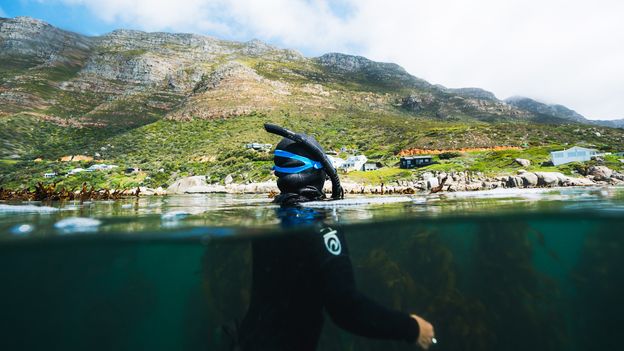
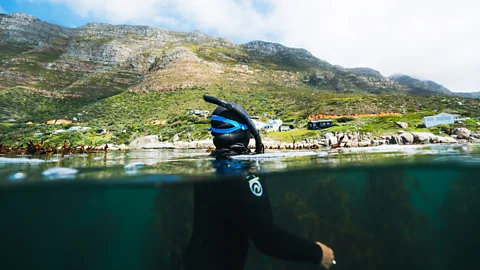 Pier Nirandara
Pier NirandaraHis devotion to the world’s oceans won him an Oscar. Now he shares his favourite things to do in Cape Town, from whale spotting in False Bay to freediving in the kelp forests.
Situated at the southern tip of Africa and surrounded by the Atlantic and Indian Oceans, Cape Town’s identity is woven with its waters. Once a refuelling station for the Dutch East India Company, its history goes further back – to the Khoekhoe and San Indigenous peoples, nomadic pastoralists and hunter-gatherers who once inhabited the region and lived off the land and sea.
Cape Town’s intimate relationship with its coastline continues to the present day. Capetonians all seem to have at least one outdoorsy hobby, and it’s not hard to understand why: in a single day, it’s possible to hike to the picturesque Lion’s Head peak, go surfing at Muizenberg beach and dive the kelp forests of False Bay, thanks to the density of activities on offer. Winters in South Africa are often milder than in Europe, coinciding with climbing season (the nearby Cederberg mountains feature world-class routes) and whale migrations up the coast.
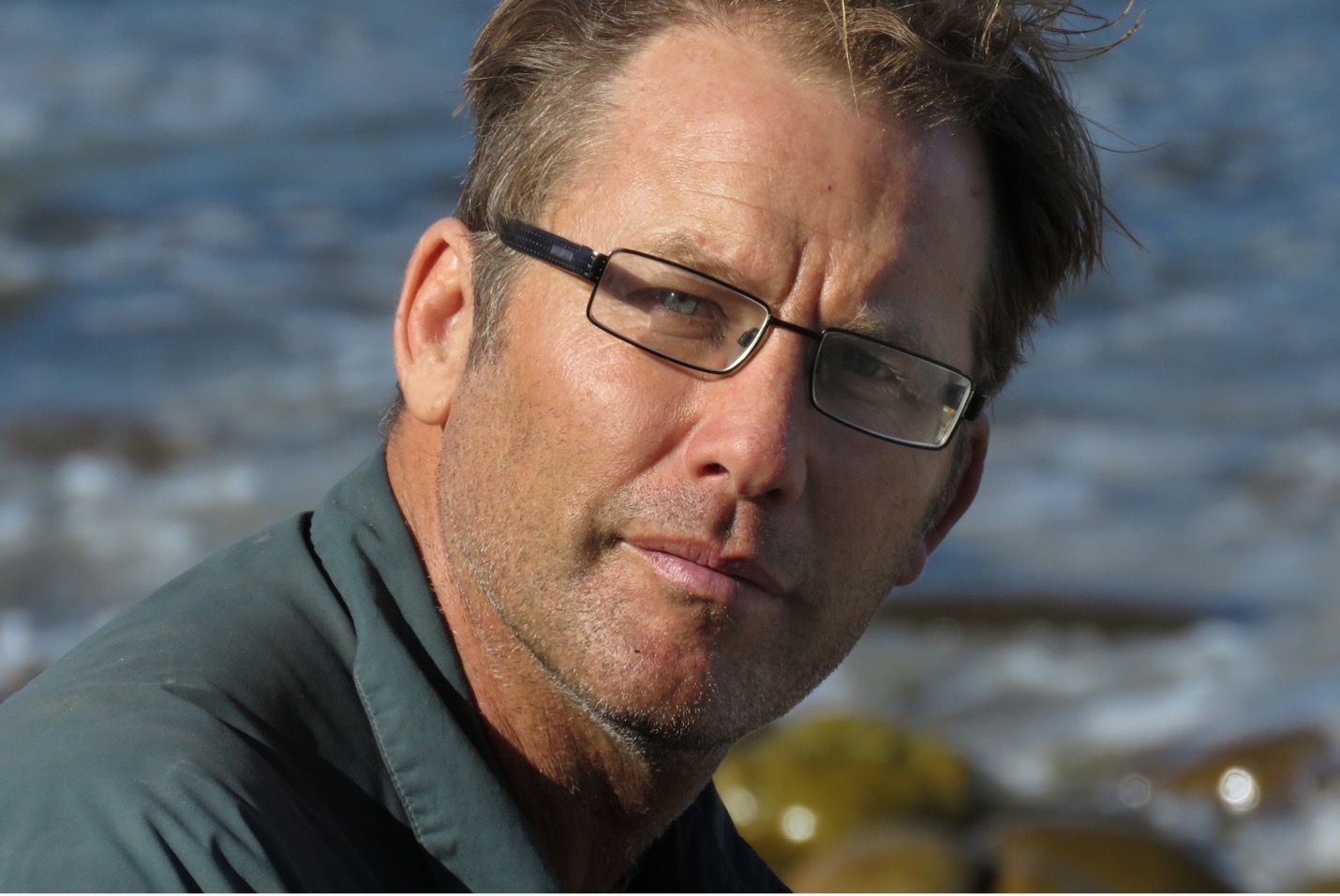
The SpeciaList
Craig Foster is a filmmaker, naturalist and the co-founder of the Sea Change Project. His films have won more than 150 international awards, while his 2024 book, Amphibious Soul, received global accolades. He has dived 365 times a year for more than a decade.
With no shortage of adventures, we spoke to renowned naturalist, author and documentarian Craig Foster, the creator behind the Academy Award-winning 2020 documentary My Octopus Teacher, about his favourite coastal activities. His latest book, Amphibious Soul: Finding the Wild in a Tame World, explores the importance of reconnecting with our intrinsic sense of wildness and relationship with the natural world, and there is perhaps no better place to experience this than in South Africa – where Foster grew up, a place he calls “the heart of the world”.
Here are Foster’s favourite coastal adventures in Cape Town.
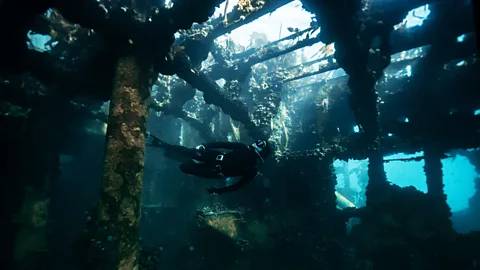 Pier Nirandara
Pier Nirandara1. Best for snorkelling and freediving: Windmill Beach
Foster begins each day with a dive – a habit he has maintained for years thanks to its profound positive effects on his mind and body.
Insider tip:
There’s an activity for everyone. “It’s all about finding something that suits your physical ability,” says Foster, encouraging people to study their surroundings and weather conditions before embarking on any outdoor adventure. “If you know your environment, you can pick your activity accordingly.”
“Windmill Beach is a beautiful spot to dive,” he says, referencing a popular beach on the Cape Peninsula. Foster encourages beginners to stick to the False Bay side as opposed to the Atlantic seaboard, thanks to the former’s generally calmer conditions: “It’s usually protected from swell.” Because the beach sits within the boundaries of a protected area, fishing and marine harvesting are prohibited. Once you’re underwater, expect to see various species of seaweed and kelp, along with shoals of fish, octopus and even small shy sharks darting between the boulders.
Don’t be fooled by the turquoise colours though. Cape Town’s water temperatures can sometimes plunge into the single digits, especially in dive sites along the Atlantic. While Foster dives without a wetsuit, it takes time to build up a cold tolerance. “Embrace the cold, but don’t push it,” he instructs. “Enjoy the dopamine rush afterwards.”
One of Foster’s preferred ways to end a dive? Climbing out to lie on a Sun-warmed boulder, followed by a braai (South African barbecue) next to the ocean.
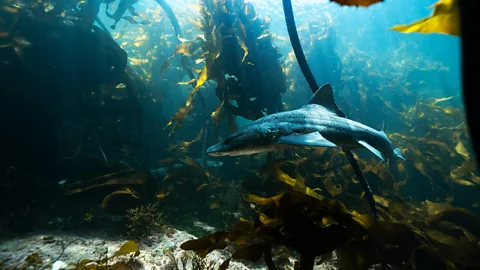 Pier Nirandara
Pier Nirandara2. Best for tracking wildlife: Cape Point Nature Reserve
At the end of the Cape Peninsula is the Cape Point Nature Reserve, home to the Cape of Good Hope and a sprawling landscape of fynbos shrubbery and endemic species such as Chacma baboons and Cape clawless otter. It’s one of Foster’s beloved places to track wildlife.
“Tracking is like a window across time into the past and future,” says Foster, who encourages people to always pay attention to the signs nature leaves behind when they venture into the wild. While markings in the sand can leave “amazing pictures of what happened in the night”, observing animal behaviour can also yield clairvoyant signs into the future. “Fleeing amphipods can be a sign of a storm to come,” he explains.
At the Origins Exhibit at the Buffelsfontein Visitors Centre in Cape Point Nature Reserve, Foster’s work with his organisation, the Sea Change Project, and discoveries made via tracking are on display. From archaeological evidence, “this [area] is possibly one of the first places in the world where people swam and dived,” he says. “So many mental health issues are because we are disconnected from our environment… tracking is a way of feeling like one belongs to the landscape.”
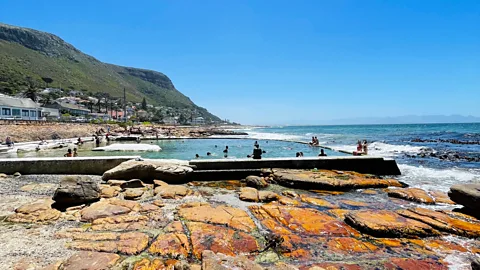 Pier Nirandara
Pier Nirandara
(Credit: Pier Nirandara)
3. Best for a casual dip: Cape Town’s tidal pools
Perfect for beginners in the water and families with kids, Cape Town’s popular and numerous tidal pools are a fantastic spot to get your feet wet – literally. “It’s a good idea to start in tidal pools,” Foster says. “They are all around the whole coast and fed constantly by the sea. I’ve observed incredible animal behaviour in tidal pools and had incredible interactions with octopus.” From Dalebrook to Glencairn to Miller’s Point, rocky watering holes dot the peninsula’s perimeter. Essentially natural swimming pools, they are free to access and provide a safe place to take the plunge.
“Go early in the morning to avoid crowds,” he notes. And be sure to take a moment to float on your back and stare up at the sky. “There’s something great about doing nothing.”
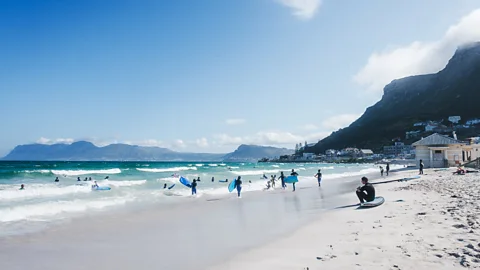 Pier Nirandara
Pier Nirandara4. Best for surfing: Muizenberg Beach
While Foster doesn’t usually surf on a board, he does enjoy body surfing. “It’s absolutely wonderful,” he says. “Going for a body surf and taking a dip after… the rush of dopamine changes your brain chemistry.”
Known for gently rolling swells, Muizenberg Beach is a great place to pick up a board or play in the waves. Surf lessons are frequently offered, and the area is also suitable for kayak-surfing, something Foster says is not nearly as difficult as stand-up surfing. “It’s like being in your own little spaceship,” he says.
Alternatively, those looking for windsurfing or kitesurfing should head to Blouberg Beach or further up the west coast to Langebaan, a sprawling flat lagoon with consistent wind.
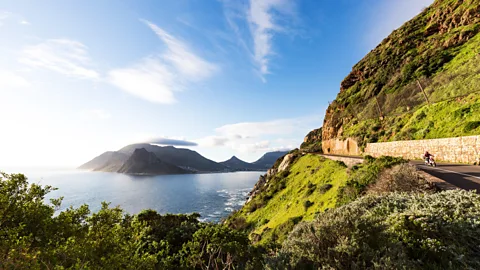 Getty Images
Getty Images5. Best for mountain biking: Tokai Trails
Drive anywhere in Cape Town, and you’re bound to pass countless cyclists pumping their legs along the photogenic backdrop of soaring peaks and a bright blue sea. While the ride across Chapman’s Peak Drive may be one of the city’s most famous (and for good reason – it’s stunning) with a route hugging the coast, mountain biking in the trails above Cape Town’s residential suburb of Tokai offers some wonderful off-roading far from cars and crowds, with views of the deep blue sea in the distance.
Foster also recommends the “beautiful trails through fynbos with varying levels” with paths cutting through the Tokai Forest. Another scenic option is the Silvermine Loop, a circumnavigation with spectacular views of land and sea, which begins at the parking lot of Silvermine Dam.
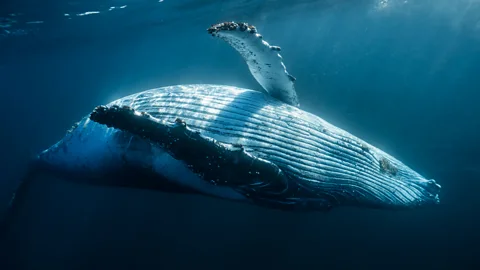 Pier Nirandara
Pier Nirandara6. Best for whale watching: False Bay
Winter in Cape Town happen to overlap with the beginning of whale season (roughly June to December), with False Bay providing a safe haven for cetaceans. Head out on a whale watching tour to spot migratory southern right whales, resident Bryde’s whales and playful humpbacks.
Insider tip:
Whatever you do, keep the environment in mind. Whether it’s getting involved with a beach cleanup or volunteering at a local conservation agency, each of us can help. “[Mother Earth] has fed us from the beginning; it’s not much to ask that we now support her,” says Foster. “All of our lives depend on it.”
Thanks to the cold, nutrient-rich waters of the Benguela current from the west and the warmer Agulhas current coming in from the east, the bay is also home to a diverse array of species, 35% of which are endemic and found nowhere else on Earth, along with pelagics and marine megafauna such as dolphins, mola mola and even orcas.
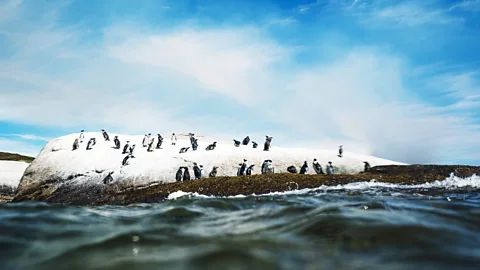 Pier Nirandara
Pier Nirandara7. Best for penguins: Boulders Beach
It’d be remiss to mention Cape Town and not some of its most famed inhabitants: the African penguin. Located within Table Mountain National Park and a wonderful day trip or family outing, Boulders Beach is a picturesque site of white granite boulders and a colony of lively penguins who congregate on the beach. Arriving sometime in the early 1980s, these flightless birds are charming, quirky and have grown to numbers of about 3,000 strong thanks to recent conservation efforts. Despite this, they are also currently endangered. “Be sure to always give them a wide berth should they cross your path,” says Foster. The popular site is managed by SAN Parks, with viewing platforms and meandering boardwalks, which the penguins do occasionally cross.
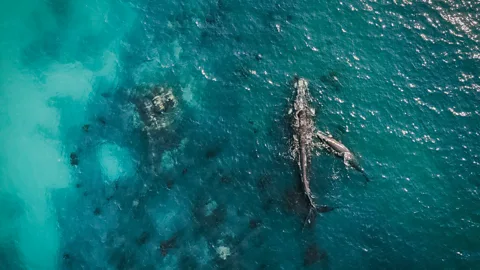 Pier Nirandara
Pier Nirandara8. Best for hiking and wildlife: De Hoop Nature Reserve
Have some time to spare in your itinerary? A three-hour drive outside Cape Town, De Hoop Nature Reserve is a mecca for spotting wildlife – think herds of eland, bontebok and ostriches, along with plenty of birds and whale watching. With endless trails, take a hike along the vlei, a marshy wetland, and explore the rock pools at low tide. Thanks to the ban on fishing for some 30-odd years, the entire area is teeming with life.
“I’ve seen herds of elands along the ocean, along with hundreds of whales,” Foster says. “It’s quite a privilege to visit a place with so much biodiversity on land and underwater, a place that’s still intact.”
BBC Travel‘s The SpeciaList is a series of guides to popular and emerging destinations around the world, as seen through the eyes of local experts and tastemakers.
Related
Turkish Airlines and Qatar Airways Suspend Mogadishu Flights Following US…
Home » Airlines News of Qatar » Turkish Airlines and Qatar Airways Suspend Mogadishu Flights Following US Embassy Terror Alert, Raising Security Concerns at
Local tourism destinations grow fast
Men sit at the Doha Corniche backdropped by high buildings in Doha on March 3, 2025. Photo by KARIM JAAFAR / AFP DOHA: Local tourism destinations are g
Hajj, Umrah service: Qatar Airways introduces off-airport check-in for pilgrims
Image credit: Supplied Qatar Airways has introduced an off-airport check-in
IAG, Qatar Airways, Riyadh Air, Turkish Airlines, Lufthansa & more…
Turkish Airlines – a Corporate Partner of the FTE Digital, Innovation & Startup Hub – is charting a course to rank among the top 3 global airlines for













